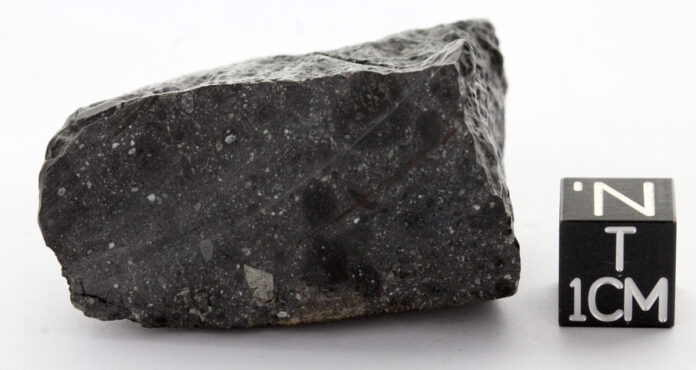According to new research published in Science Advances, the bombardment of Mars by a specific type of meteorite carried a large volume of water to the planet early in its history.
“The amount of water delivered to Mars was enough to create a planet-wide ocean 300 metres thick,” said corresponding author Martin Bizzarro, a professor at the University of Copenhagen.
This estimate was derived by him and his colleagues using a measurement known as a global equivalent layer (GEL). It is commonly used to conceptualise water quantities on Mars. It means that if all of the water brought by meteorites remained in liquid form. Rather than being absorbed in the planet’s crust or frozen. It would form a global ocean 300 metres deep.
The researchers also linked the water-bearing meteorites, known as chondrites, to asteroids in the outer solar system known to contain prebiotic elements necessary for the emergence of life.
The evidence from Mars orbiters suggests that the planet once had vast oceans. However, the debate over the origins and abundance of the ancient Martian water reservoir continues. Much of the planet’s water is thought to have formed as a result of gas emissions from its cooling mantle. It also went through a period when chondrites crashed into its surface. Planetary scientists suspected that those chondrites provided a significant amount of water.
To learn more about the origins of the chondrites, the researchers examined chromium isotopes in 31 Martian meteorites. It is a diverse group that spans most of the planet’s geologic history.
The analysis revealed that the bombarding chondrites that melted into and mixed with the planet’s crust billions of years ago originated in the outer solar system and thus contained water and carbon.
Water volume estimation
After determining the origins of the chondrites, Bizzarro and his colleagues calculated the amount of water that those chondrites could have brought to young Mars. They began by comparing the chromium ratios in meteorite samples that were likely sourced from both exotic chondrites and primordial mantle material.
According to their findings, the rocks would have transported liquid equivalent to more than 300 metres GEL on Mars. Even if the chondrites only contained 10% water. They would have also brought other elements that could have aided in the creation of life.

